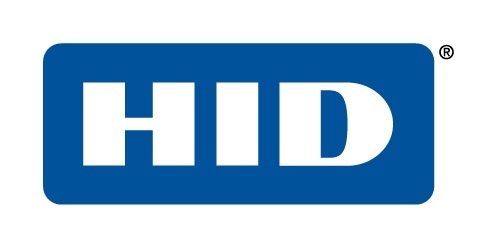Separate yourself from the competition, create consistent internal standards, determine appropriate compensation and more. by Lee Distad
State licensing and education requirements vary throughout the country, and for security integrators in states with few or no requirements, it’s not always clear why you should invest in training beyond what you “need to do.”
But there are plenty of reasons to go beyond your state’s requirements. Here are 10.
Source: NTS
Separates You From The Competition
Being more trained than the competition not only gives you a leg up when you are competing for jobs, but it makes the end product better for your customer, too.
“If our technicians have a certification and other companies do not, it is a benefit to the customer because we are offering a level of competency that others aren’t, says Brian Schmidt of Mansfield, Ohio-based Schmidt Security Pro.
Ohio currently has no licensing or continuing education requirements, but the standard for Schmidt Security Pro is that every technician has at least their Certified Alarm / Security Technician – Level 1.
Consistent Internal Standards
One of the ancillary benefits that comes with training and education is the ability to create a set of company standards for every job function and every aspect of the business.
“Internal standards guarantee quality work and repeatable results,” says Schmidt.
Determine Appropriate Compensation
The corollary to having internal standards is that it’s easier to set a logical compensation plan.
Many companies that value education offer bonus and pay grade bumps for achieving required certifications.
“It helps to internally create different measurable levels of competency that are used to determine qualifications to work on a particular job or certain equipment,” says Schmidt.
“It also is used to determine appropriate compensation.”
Geographic Flexibility
Less obvious than the other reasons but no less important is the need to work outside of your home state.
“Don’t assume that you’ll be working in your state,” says Don McInnes, Senior National Account Manager – Government Programs for Stanley Works.
“I touch all fifty states. Clients may want to do business with you in another state because of the relationship. You may end up partnering as a sub with another contractor and have to follow that state’s rules.”
National Awareness Means You Can Be A Positive Influence Locally
More than one dealer has leveraged their educational standards into influencing their state to meet their standards.
Monitor Controls of Wallingford, Conn. is one such dealer, having lobbied the state to recognize NTS training in order to gain licensing.
“Being aware of things that work and sharing regional requirements at a national level can bring about change that benefits your state and your market,” says McInnes.
Best Practices Take Your Company Further
Instead of re-inventing the wheel or worse, learning from needless errors, formal training exists to allow dealers to operate at a proven standard.
“If you look at this from the standpoint of the IT community, for years they’ve operated under the assumption of best practice: that this is the industry standard,” says McInnes. “The premise of NTS is to show you what the best practices are.”
That, he says, is invaluable for dealers.
Adds Credibility To The Whole Industry
Perhaps most importantly, a high standard of training and certification benefits both individual dealers and the industry as a whole, elevating everyone’s standing.
As certifications and training programs become more widely adopted, education does not simply become a differentiator – it becomes the standard for everyone working in the industry. When that happens, the credibility of the entire industry improves, leading to more acceptability and understanding of the security business.
Better Troubleshooting Response Times
Increased operational efficiency is another, measurable benefit. Matthew Ladd, President of The Protection Bureau in Exton, PA, points out that a batch of certifications will push a technician ahead of the game and help him provide quicker response to solving mechanical issues.
“Most problems are product-specific,” says Ladd. “We do so much training so when our guys encounter a problem, they already know the answer.”
Improved Retention
Ladd also asserts that investing in your staff shows that you believe they are worth training, cultivating, and keeping on. That loyalty gets reciprocated, he says.
“The more support you show them in training them, the more likely they are to make their career with you a long one.”
Improved Acquisition
Similarly, Ladd believes that a high training standard will attract more quality candidates.
“Better people want to work for the winning team,” he says.
“If you’re the best of the breed, techs will hear about it, and they will want to work with you.”
Source: NTS
Separates You From The Competition
Being more trained than the competition not only gives you a leg up when you are competing for jobs, but it makes the end product better for your customer, too.
“If our technicians have a certification and other companies do not, it is a benefit to the customer because we are offering a level of competency that others aren’t, says Brian Schmidt of Mansfield, Ohio-based Schmidt Security Pro.
Ohio currently has no licensing or continuing education requirements, but the standard for Schmidt Security Pro is that every technician has at least their Certified Alarm / Security Technician – Level 1.
Consistent Internal Standards
One of the ancillary benefits that comes with training and education is the ability to create a set of company standards for every job function and every aspect of the business.
“Internal standards guarantee quality work and repeatable results,” says Schmidt.
Determine Appropriate Compensation
The corollary to having internal standards is that it’s easier to set a logical compensation plan.
Many companies that value education offer bonus and pay grade bumps for achieving required certifications.
“It helps to internally create different measurable levels of competency that are used to determine qualifications to work on a particular job or certain equipment,” says Schmidt.
“It also is used to determine appropriate compensation.”
Geographic Flexibility
Less obvious than the other reasons but no less important is the need to work outside of your home state.
“Don’t assume that you’ll be working in your state,” says Don McInnes, Senior National Account Manager – Government Programs for Stanley Works.
“I touch all fifty states. Clients may want to do business with you in another state because of the relationship. You may end up partnering as a sub with another contractor and have to follow that state’s rules.”
National Awareness Means You Can Be A Positive Influence Locally
More than one dealer has leveraged their educational standards into influencing their state to meet their standards.
Monitor Controls of Wallingford, Conn. is one such dealer, having lobbied the state to recognize NTS training in order to gain licensing.
“Being aware of things that work and sharing regional requirements at a national level can bring about change that benefits your state and your market,” says McInnes.
Best Practices Take Your Company Further
Instead of re-inventing the wheel or worse, learning from needless errors, formal training exists to allow dealers to operate at a proven standard.
“If you look at this from the standpoint of the IT community, for years they’ve operated under the assumption of best practice: that this is the industry standard,” says McInnes. “The premise of NTS is to show you what the best practices are.”
That, he says, is invaluable for dealers.
Adds Credibility To The Whole Industry
Perhaps most importantly, a high standard of training and certification benefits both individual dealers and the industry as a whole, elevating everyone’s standing.
As certifications and training programs become more widely adopted, education does not simply become a differentiator – it becomes the standard for everyone working in the industry. When that happens, the credibility of the entire industry improves, leading to more acceptability and understanding of the security business.
Better Troubleshooting Response Times
Increased operational efficiency is another, measurable benefit. Matthew Ladd, President of The Protection Bureau in Exton, PA, points out that a batch of certifications will push a technician ahead of the game and help him provide quicker response to solving mechanical issues.
“Most problems are product-specific,” says Ladd. “We do so much training so when our guys encounter a problem, they already know the answer.”
Improved Retention
Ladd also asserts that investing in your staff shows that you believe they are worth training, cultivating, and keeping on. That loyalty gets reciprocated, he says.
“The more support you show them in training them, the more likely they are to make their career with you a long one.”
Improved Acquisition
Similarly, Ladd believes that a high training standard will attract more quality candidates.
“Better people want to work for the winning team,” he says.
“If you’re the best of the breed, techs will hear about it, and they will want to work with you.”
Source: NTS













